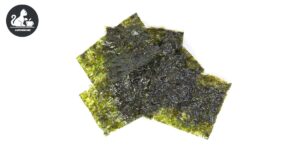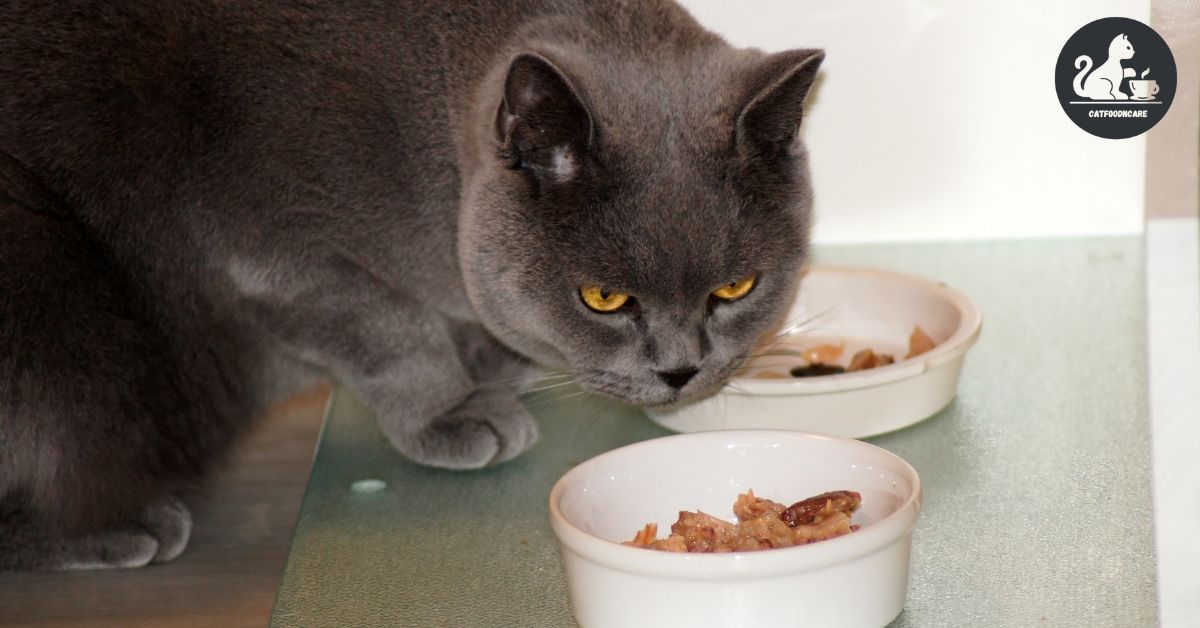As a pet owner, it’s natural to wonder about the nutritional benefits of different foods for your feline friends. One question that often comes up is, “Can cats eat seaweed?” The answer is yes, but it’s not as simple as just feeding your cat plain seaweed.
Seaweed can be a good source of essential nutrients for cats, including Omega-3 fatty acids, amino acids, and trace minerals. These nutrients can support healthy skin, a shiny coat, and overall health. However, not all types of seaweed are safe for cats, and it’s important to consider the potential health concerns associated with feeding seaweed to cats.
Some types of seaweed, such as brown seaweed and seaweed with high levels of iodine, can cause health issues in cats. Excessive iodine intake can affect thyroid functions, leading to health conditions like hyperthyroidism. Additionally, seaweed can contain heavy metals, which can have a negative impact on a cat’s health.
It’s also important to note that while seaweed can provide some nutritional benefits, it should not replace a cat’s regular food. Cats need a balanced diet that includes animal-based proteins, and seaweed should only be given as a supplement or treat.
While seaweed can be a healthy addition to a cat’s diet, it’s important to feed it in moderation and choose the right type of seaweed. Always consult with a vet before introducing new foods into your cat’s diet.
What Do Veterinarians Say about Feeding Seaweed to Cats?
Veterinarians often recommend a balanced diet for our feline friends. This diet can include seaweed, but it should be given in moderation. Seaweed for cats can provide nutritional benefits, including essential nutrients like Omega-3 fatty acids, amino acids, and trace minerals. These nutrients can promote healthy skin and a shiny coat in cats.

However, not all types of seaweed are safe for cats. Edible seaweed like nori sheets can be a good snack for cats, but seaweed with salt or additional ingredients might cause health issues. Also, some seaweed types have high levels of iodine, which can affect thyroid functions in cats.
Veterinarians also warn about the potential dangers of seaweed feeding. Seaweed can contain heavy metals, which can have a negative impact on a cat’s health. Therefore, it’s important for pet owners to choose seaweed products carefully and monitor their cats for any adverse effects.
While seaweed can offer potential health benefits to cats, it should never replace a cat’s regular food. Always consult with a vet before introducing new foods into your cat’s diet.
Can Cats Eat Seaweed?
Yes, cats can eat seaweed. Seaweed is packed with essential nutrients like Omega-3 Fatty Acids, amino acids, and trace minerals which can provide nutritional benefits for your feline friends. It can support healthy skin, a shiny coat, and healthy gut activity.
However, not all types of seaweed are safe for cats. Edible seaweed like nori sheets are a good choice. Avoid feeding your cat seaweed with salt or any additional ingredients that could cause health issues.
Seaweed also contains levels of iodine which can support thyroid functions. But, excessive iodine intake can lead to health problems. So, it’s important to give seaweed to cats in moderation.
As a pet owner, it’s crucial to balance your cat’s diet with a mix of animal protein, healthy treats, and a bit of seaweed. Always consult with a vet before adding any dietary supplement to your cat’s regular food.
Remember, while seaweed snacks can be a fun treat, they should not replace a balanced, meat-based diet. Seaweed for cats should be seen as a supplement, not a main course.
While seaweed can offer potential health benefits, it’s important to feed it to your cats in moderation and always keep an eye on any adverse effects.
Nutritional Benefits of Seaweed for Cats?
Seaweed can offer many nutritional benefits to our feline friends. Here’s why:
- Seaweed is a rich source of vitamins and essential nutrients. It contains amino acids and trace minerals that can help maintain healthy cells in cats.
- It is a good source of omega-3 fatty acids, which are known for promoting healthy skin and a shiny coat in cats.
- Seaweed can aid in nutrient absorption and promote healthy gut activity. It can help reduce digestive issues and maintain a healthy gastrointestinal tract.
- It has potential health benefits such as helping to regulate blood pressure and decrease inflammation.
- Seaweed can help maintain a healthy thyroid in cats. However, excessive iodine intake can lead to health issues, so it’s important to monitor the iodine content in the seaweed.
- Seaweed is low in calories, which can help your cat maintain a healthy weight and energy level.
However, it’s important to note that not all types of seaweed are safe for cats. Human food like sushi rolls often contains additional ingredients that may not be safe for cats. Always choose plain seaweed or cat-specific treats made with seaweed. Also, remember to introduce seaweed into your cat’s diet gradually and in moderation to avoid any adverse effects.
While seaweed can offer many benefits, it should not replace a balanced, meat-based diet for cats. Always consult with your vet before introducing new foods into your cat’s diet.
Potential Health Risks of Feeding Seaweed to Cats?
- Feeding seaweed to cats can come with potential health risks. While seaweed has nutritional benefits like omega-3 fatty acids and essential nutrients, it’s not part of a cat’s natural diet.
- One concern is the levels of iodine in seaweed. Cats need iodine, but excessive iodine intake can harm their thyroid functions.
- Seaweed can also contain heavy metals which can cause health issues in cats. These metals can damage healthy cells and affect nutrient absorption.
- Seaweed snacks or seaweed sheets often have additional ingredients like salt. Too much salt can lead to high blood pressure in cats.
- Cats are carnivores and their bodies are not designed to digest plant matter efficiently. Feeding them seaweed can lead to digestive issues.
- Lastly, some cats might be allergic to seaweed. Symptoms can include itchy skin, skin dryness, and upset stomach. Always consult with a vet before introducing new foods to your feline friends.
How to Feed Seaweed to Cats Safely?
Feeding seaweed to cats can provide numerous health benefits. Seaweed is a rich source of essential nutrients, including Omega-3 Fatty Acids, which can contribute to healthy skin and a shiny coat. However, it’s important to feed seaweed to your feline friends safely. Here’s a step-by-step guide on how to do it.
1. Choose the Right Type of Seaweed: Not all types of seaweed are safe for cats. The most common types that are safe include nori sheets and brown seaweed. Avoid seaweed with salt or additional ingredients that could harm your cat.
2. Check the Iodine Content: Seaweed is a rich source of iodine, which is essential for healthy thyroid functions. However, excessive iodine intake can lead to health issues. Always check the levels of iodine in the seaweed you’re feeding your cat.
3. Start with Small Amounts: A bit of seaweed can be a great addition to your cat’s regular food. Start with small amounts and observe your cat’s reaction. If your cat enjoys the seaweed and shows no adverse effects, you can gradually increase the amount.
4. Mix Seaweed with Regular Food: Seaweed should not replace your cat’s regular, meat-based diet. Instead, mix a small amount of seaweed into your cat’s regular food. This can provide the nutritional benefits of seaweed without causing digestive issues.
5. Monitor Your Cat’s Health: Keep an eye on your cat’s health after introducing seaweed into their diet. If you notice any changes in your cat’s energy level, coat condition, or digestive health, consult your vet immediately.
6. Avoid Feeding Seaweed Daily: While seaweed has potential health benefits, it should not be a daily part of your cat’s diet. Feeding seaweed in moderation can prevent excessive iodine intake and other potential health concerns.
7. Consult Your Vet: Before introducing any new food into your cat’s diet, it’s always a good idea to consult your vet. They can provide guidance based on your cat’s specific health conditions and dietary needs.
Remember, while seaweed can be a beneficial supplement to your cat’s diet, it should not replace a balanced, meat-based diet. Always monitor your cat’s health and consult your vet if you notice any changes. With the right approach, seaweed can be a healthy and tasty treat for your furry friend.
Conclusion
Seaweed can be a beneficial addition to your cat’s diet. It’s packed with essential nutrients like Omega-3 Fatty Acids and amino acids that can boost your feline friend’s health. Seaweed snacks can be a fun way to introduce seaweed to cats. However, it’s important to remember that not all types of seaweed are safe for cats. Always choose plain seaweed without any additional ingredients like salt. Also, be mindful of the levels of iodine in seaweed as excessive iodine intake can lead to health issues. Always consult with a vet before introducing new foods into your pet’s diet.
Recent Posts
10 Best Canned Cat Foods of 2024, According to Veterinarians
Inside this expert-backed list of 2024's top wet cat foods, discover why veterinarians trust these brands for optimal feline nutrition.
Grab expert insights into the top-rated wet cat foods that veterinarians trust most, and discover why some brands outshine...

